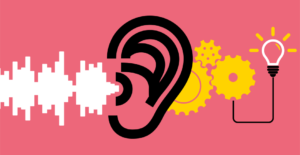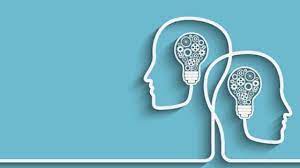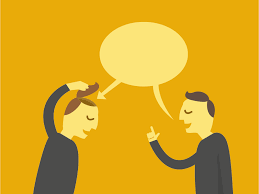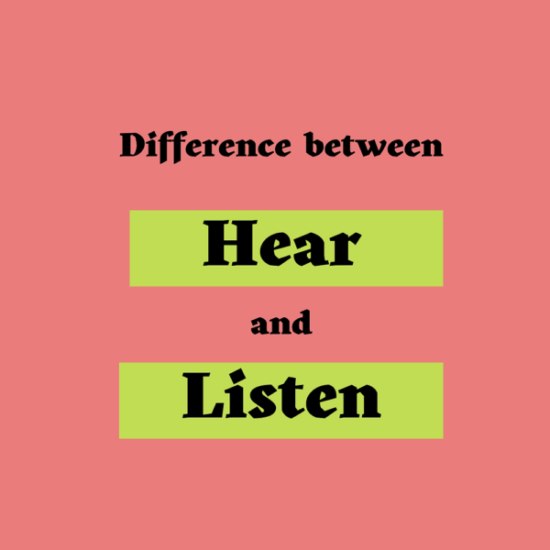Do you know the difference between hearing and listening? Most people think that they are the same thing, but they are very different. In this blog post, we will discuss the difference between hearing and listening, and explain why it is important to understand the distinction. We will also provide some tips on how to improve your listening skills!
Contents
What Is Hearing?

In simple biological terms, hearing is the process of our auditory system converting pressure waves into meaningful sounds. It is a physiological act that involves the use of ears, nerve cells, and the brain. Hearing is primarily physical nature and exists as one of the five very significant senses in our body.
Hearing can happen subconsciously without our active realization of the fact that we might be processing and decoding stimulus. It does not rely on our concentration.
What Is Listening?
Listening can be classified as a skill that requires deliberate attention to external stimuli. It is the active process of perceiving and making sense of the data being decoded by our brain. Listening requires patience, attention, time, empathy as well as understanding to be considered a “good” skill.
Active v/s Passive Listening

A passive listener is defined as someone who isn’t contributing to the conversation. They do not react to what they listen to. To describe it plainly, a passive listener only consumes the information they’re given without any questions, interjections, or visible interest.
On the other hand, active listening is concerned with two-way interactions, willingness to indulge, presence of questioning and responding, and ongoing evidence of active involvement.
While active listening is an interactive process, passive listening is a mechanical process.
Non-verbal gestures play a significant role in determining the nature of listening. An active listener will indulge in using cues such as hand movements, nodding, and eye contact. Whereas a passive listener may demonstrate behaviors like eye-rolling, looking away, yawning, staying silent, or showcasing distractions.
The Difference Between Hearing and Listening
Hearing is mainly concerned with a passive intake of sound waves. These sounds can even be present in the environment around you (for example, cars, birds, buzzing of electronics).
Whereas, listening is the deliberate act of comprehending and processing the same sound waves. For instance, the same sounds in your surroundings may cause disturbances, if one listens closely with the intent of internalizing these sounds.
Hearing may not involve any special efforts; whereas listening demands a person’s time and attention to actively absorb and piece together the information being received.
Hearing is an involuntary act carried out by our physiological functioning. However, listening requires the brain’s efforts to happen.
Hearing is a subconscious process, but listening needs conscious input.
Why Is It Important to Understand the Difference?
It is important to understand the difference between hearing and listening because it can help us communicate more effectively. If we only hear what someone is saying, we may miss important details or misunderstand their message. However, if we actively listen to what someone is saying, we are more likely to accurately understand their message and respond in a way that is helpful or meaningful.
Benefits of Good Listening Skills

Being a good listener can improve the quality of all aspects of a person’s life, including personal, social, professional, and also academic, in the following ways:
- Builds stronger, more trustworthy relationships
- Effectiveness in conflict resolution
- Ensures that you don’t miss any important information
- Knowledge and capacity building
- Enhances leadership skills
- Grow the feeling of understanding and empathy
How To Be A Better Listener?
There are various ways and tips through which one can work on improving their listening skills. Some of these include:
Be curious
Have an open mind to accommodate, learn and understand new and unknown things.
Ask questions
Come up with relatable, open-ended, and fruitful questions to keep the conversation flowing and provide the other person a chance to feel like their voice matters.
Practice mindfulness
Being mindful helps you to be more grounded and present in the reality; hence enhancing your attention and alertness to what the other person has to say.
Let go of assumptions
Sitting with the assumption that you know everything can cause obstacles in your journey of becoming a better listener. It is important to show flexibility and open-mindedness when engaging in conversations with others.
Be patient
Take your time to process and understand whatever new information you absorb. Do not rush yourself to learn and digest everything in one go. Carry out your additional research and self-reflective work to piece together the new information.
Do not offer advice; unless asked
When talking to others, ensure that you do not present yourself as someone who claims to be a master of all trades. Refrain from giving unsolicited advice or showing off knowledge of something you are not well aware of.
Avoid distractions
Try not to seem zoned out or distracted while someone is talking. Maintain neutral facial expressions and hold good eye contact with the person to make them feel included and heard.
Validate
When a person shares their knowledge with you, reassure them that their efforts are acknowledged. Make them feel validated by giving remarks, providing feedback, and expressing gratitude for sharing their thoughts.
Conclusion
Hearing is simply the ability to detect sound waves. Listening, on the other hand, is an active process that involves receiving, interpreting, and responding to those sound waves. To truly listen to someone, you must be engaged in the conversation and be present in the moment. You must also be willing to open your mind and consider what the other person is saying.
A Word From Therapy Mantra
Your mental health — Your psychological, emotional, and social well-being — has an impact on every aspect of your life. Positive mental health essentially allows you to effectively deal with life’s everyday challenges.
At TherapyMantra, we have a team of therapists who provide affordable online therapy to assist you with issues such as depression, anxiety, stress, workplace Issues, addiction, relationship, OCD, LGBTQ, and PTSD. You can book a free therapy or download our free Android or iOS app.


